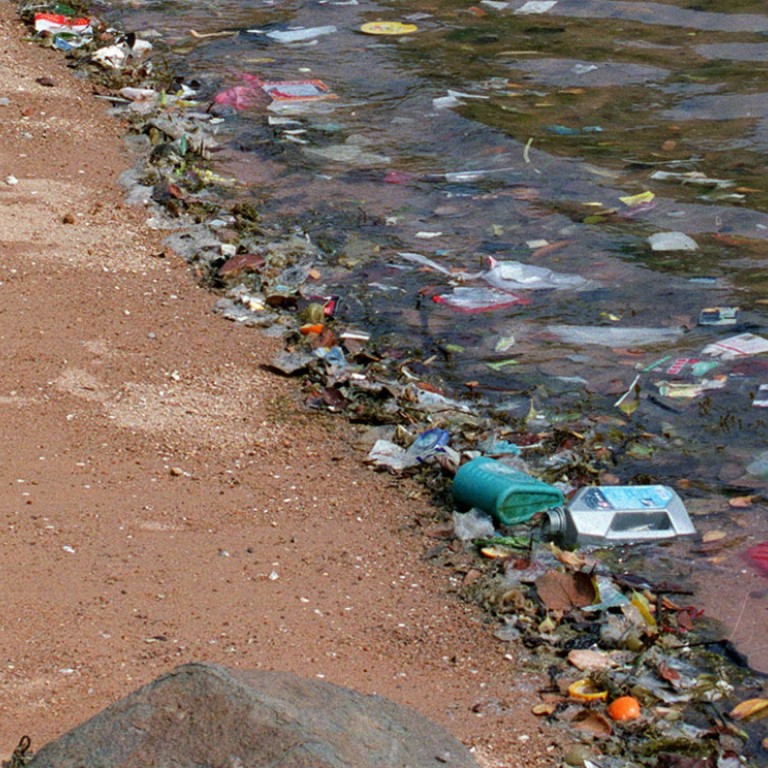
Comprehensive clean-up strategy needed to tackle marine rubbish
Hong Kong's marine rubbish is, for a place of the SAR's technical know-how, wealth and resources, a civic disgrace and an ecological insult. It is also a public safety hazard.
Hong Kong's marine rubbish is, for a place of the SAR's technical know-how, wealth and resources, a civic disgrace and an ecological insult. It is also a public safety hazard.
Take these four situations, all of which I observed on one day last month.
I took the ferry from Lamma to Aberdeen. Crossing the Lamma Channel, rafts of marine rubbish, mostly polystyrene, drifted in every direction.
The debris was rafted together by the winds and tides, thus making its removal relatively easy. But no comprehensive scheme or effective clean-up boats have ever been put in place to do so, despite advocacy for this, over many years, by concerned groups.
Aberdeen harbour was a complete mess, and a travesty of what purports to be a tourist attraction. Its waters were covered in polystyrene, plastic, dead fish, and other foul flotsam and jetsam. The water stank. It was more like a third-world upriver backwater than a first-world tourist attraction.
Later that day, at the Central piers, I watched men fishing. Fish near the surface nibbled on, and ingested, plastic that had drifted into the gaps between the piers. It is ironic that Hong Kong now has a multibillion-dollar, world-class sewage treatment scheme, but it will not provide boats, costing a lot less, to effectively banish the .
Larger territories might struggle to do so, given the length of their coastlines. In tiny, wealthy Hong Kong, it is eminently achievable.
Finally, and surely most troubling, that same evening, en route by a fast catamaran from Discovery Bay to Central, the vessel came to a stop, wallowing around in the channel. The ferry drifted to a stop roughly where inbound container vessels turn in towards Kwai Chung.
What was the matter, I wondered, peering out towards the shipping lane. Then a voice came over the PA system: "Marine rubbish has clogged the ferry's power intakes. We will resume our journey when they have been cleared of rubbish." So there we sat, a sitting duck - another ferry disaster - had an inbound ship been too close to alter course.
Despite worthwhile community involvement, well-intentioned localised beach clean-ups cannot be the solution to Hong Kong's marine rubbish.
The solution requires a systemic, overall strategy, which is entirely doable, and clean-up vessels that I and others asked the government to provide more than 15 years ago.

